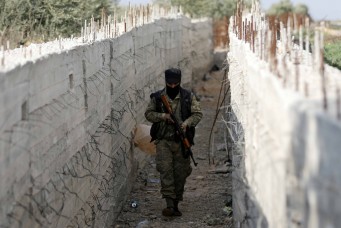Egypt’s Predicament
Two and a half years after the fall of President Hosni Mubarak, a year after the election of his successor, Mohammed Morsi, and after Morsi’s sudden ouster and the appointment of an interim president, Mansour Al-Adly, head of Egypt’s Supreme Constitutional Court, in July, the country is still searching for its identity.
A cloud of concern and anticipation hangs over Egypt today. The mood is in stark contrast to the exuberant euphoria and inflated expectations that prevailed at the start of the January 25 revolution. Two and a half years after the fall of President Hosni Mubarak, a year after the election of his successor, Mohammed Morsi, and after Morsi’s sudden ouster and the appointment of an interim president, Mansour Al-Adly, head of Egypt’s Supreme Constitutional Court, in July, the country is still searching for its identity. The mass protests, violence, and political vacuum illustrate Egypt’s dire predicament.
Our challenge is to understand not just what happened in Egypt, but why, and to lay out a framework for the country’s future development rather than just defining the end goal. In 2011, Egyptians knew what they were rejecting—the continuation of a structurally heavy and authoritarian political system, which essentially had usurped them of their right to participate in determining their own political future. What many failed to understand were the prerequisites for establishing a better alternative system that is democratic both in its representational concepts and in the exercise of its legislative, judicial, or executive authority. The lack of understanding of what constitutes a democracy is at the root of Egypt’s political woes.
Since the revolution, in spite of government resistance, Egypt has continued on the road towards more media openness, a course initially charted by Mubarak. The country has also seen the rise of individuals demanding their rights, far advanced from what existed in the past. However, Egypt has not yet started the true reconciliation process, nor is it any nearer the end of the democratic transition. As a society, it is actually becoming more divided and polarized. The reason for this is that the different sides of the political spectrum, between the conflicting positions of Islamists and the non-Islamist opposition, each wanting modern Egypt to reflect their divergent visions for society. Particularly but not exclusively true for the Islamists who do not want to include others in their ideological vision of Egypt.
Egypt cannot create a democratic system with one exclusive vision for society. Acceptance of the inevitable imperative of including others is the first step towards reconciliation. The new political system must be inclusive of all walks of life without distinction, discrimination, or undue advantage, irrespective of other beliefs. It cannot be considered a truly democratic representation otherwise. When discussing a state’s transitional experience, particularly in Eastern Europe, the focus has been on the changing the government personnel, recalibrating the civil service or bureaucracy to become compatible with the principles of the new state, and restructuring the security system. These are all important, however, what is often missed are the unique challenges faced in different circumstances even before a society gets a chance to redefine itself. The issues in Egypt and parts of the Arab world today are unlike those of Eastern Europe, where a clearly defined alternative vision for the society was widespread. In fact, the challenges in Arab societies are closer to the challenges faced before by South Africa in ending apartheid and even by India in fighting for independence. To add to the complexity, there is no Mandela or Gandhi in Egypt, on either side of the political spectrum.
At its foundation, a democratic Egypt must provide room and representation for Islamists and non-Islamists alike. Inclusiveness is the central pillar of a well-functioning democracy. All sides in Egypt must understand that winning the public mandate to govern is as much as ever about effective representation of all Egyptians as it is about promoting the programs consistent with the ideology of their natural constituency. Until they do, Egypt will continue in a vicious circle of political stagnation, making little progress towards a self-sustaining and equitable political system.
Nabil Fahmy, a former Egyptian ambassador to Japan and to the United States, is the dean of the School of Global Affairs and Public Policy at the American University in Cairo.



